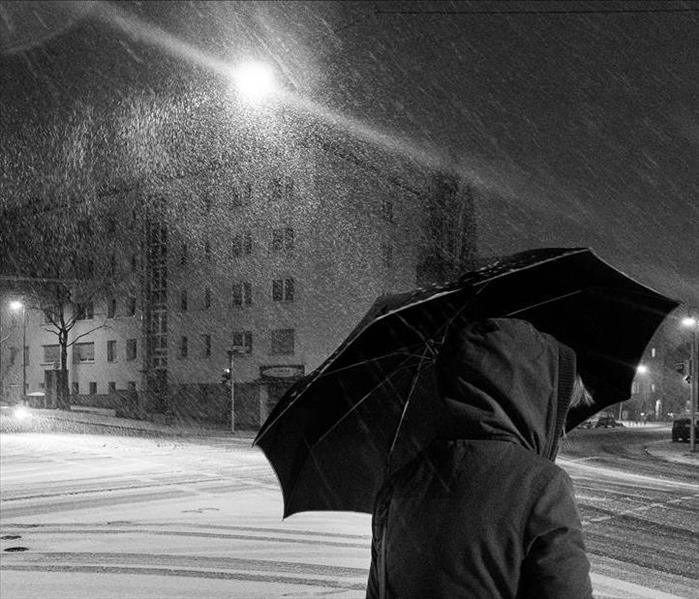Winter Weather Readiness
1/8/2016 (Permalink)
It’s getting to be that time of year again, where Winter Weather is going to start invading our daily life. Winter storms can range from a light snow over a few hours to a blizzard with blinding, wind-driven snow that lasts for several hours or more. Icy Conditions are typical within our area, and many winter storms are accompanied by dangerously low temperatures and sometimes by strong winds, icing, sleet and freezing rain.
One of the primary concerns is the winter weather's ability to knock out heat, power, and communications services to your home or office, sometimes for days at a time. Heavy snowfall and extreme cold can immobilize an entire region as was evident for last years February Storm that shut down DFW for days.
The National Weather Service refers to winter storms as the “Deceptive Killers” because most deaths are indirectly related to the storm. Instead, people die in traffic accidents on icy roads and of hypothermia from prolonged exposure to cold. So it’s extremely important to be prepared for winter weather before it strikes.
Over the next few weeks, we’ll be posting ideas and tips on how to prepare before weather hits, what to do once it’s here, and how to respond after the weather is over, so check back often!
BEFORE WINTER STORMS
To prepare for a winter storm you should do the following:
· Before winter approaches, add the following supplies to your emergency kit:
o Rock salt, kitty litter, or more environmentally safe products to melt ice on walkways. Visit the Environmental Protection Agency for a complete list of recommended products.
o Sand to improve traction.
o Snow shovels and other snow removal equipment.
o Sufficient heating fuel. You may become isolated in your home and regular fuel sources may be cut off. Store a good supply of dry, seasoned wood for your fireplace or wood-burning stove.
o Adequate clothing and blankets to keep you warm.
· Make a Family Communications Plan. Your family may not be together when disaster strikes, so it is important to know how you will contact one another, how you will get back together and what you will do in case of an emergency.
· A NOAA Weather Radio broadcasts alerts and warnings directly from the NWS for all hazards. You may also sign up in advance to receive notifications from your local emergency services.
· Download FEMA’s Be Smart. Know Your Alerts and Warnings for a summary of notifications.
· Minimize travel. If travel is necessary, keep a disaster supplies kit in your vehicle.
· Bring pets/companion animals inside during winter weather. Move other animals or livestock to sheltered areas with non-frozen drinking water.
Check back soon for additional information!






 24/7 Emergency Service
24/7 Emergency Service
